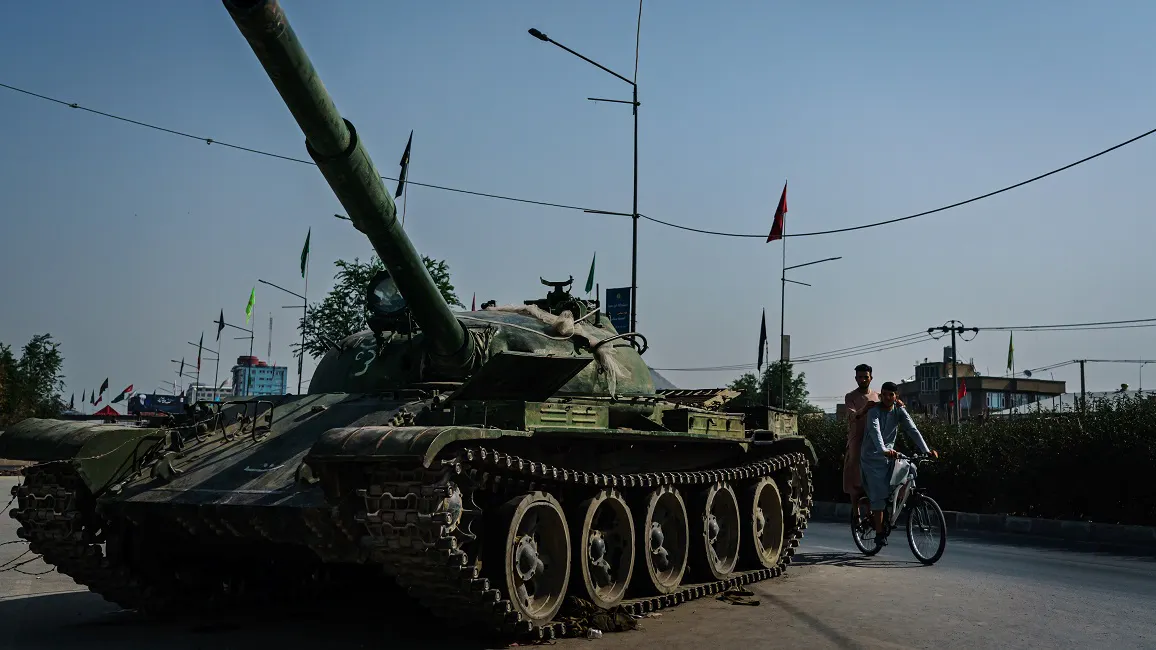The Pentagon and State Department are at war with an official government auditor, refusing to cooperate with a probe of how 20 years of missteps by top Washington brass led to Afghanistan being ceded to the ragtag Taliban despite $90 billion in U.S. funds, a government report revealed Monday.
The Special Inspector General for Afghanistan Reconstruction (SIGAR) has been one of the most incisive watchdogs in Washington, keeping tabs on a foreign matter that was largely out of the public eye even as U.S. “experts” appeared to make one blunder after another. After numerous embarrassing reports, DOD and State are now refusing to cooperate with SIGAR, stating that it only has the authority to audit Afghanistan reconstruction–which ended when the U.S. pulled out.
In August 2021, President Joe Biden withdrew troops and contractors from the country overnight, without even telling Afghan soldiers on patrol. It left equipment behind, which the Taliban took and used for combat and propaganda, and some of the Afghan forces that the U.S. had trained to fight the Taliban themselves joined “extremist groups,” the report said.
Biden subsequently began allowing former Taliban employees to migrate to the U.S. under a refugee program billed as being for “interpreters,” while Russia and China moved in to Afghanistan to exploit its natural resources.
“We identified eight systemic factors that explain why, after 20 years and nearly $90 billion in U.S. security assistance, the [Afghan National Defense and Security Forces] was vulnerable to collapse in the first place,” SIGAR said.
In May 2022, SIGAR provided DOD and State with an interim report, but “DOD and State declined to review that interim draft, denied us access to their staff, and mostly declined to answer requests for information,” SIGAR wrote in its new report.
By this month, a cold war was emerging in the normally-mundane letters exchanging information between them.
“We offered to continue to meet regularly to further discuss the range of issues covered in the draft, but the author did not follow up,” S. Rebecca Zimmerman, the deputy assistant secretary of defense for Afghanistan, Pakistan, and Central Asia, claimed February 16.
SIGAR responded: “DOD’s assertion that the author ‘never followed up’ on its offer to discuss the draft report is simply false. Moreover, DOD’s highlighting of ‘the efforts undertaken by DoD to cooperate with SIGAR’ should be viewed in the context of a history of extensive delays, missed deadlines, and incomplete answers to questions.”
“SIGAR strongly disagrees with DOD’s characterization of their engagement on this report. In fact, DOD only provided limited responses to SIGAR’s request for information (RFI) and missed every deadline for responding to SIGAR’s questions or for providing feedback to vetting drafts of this report,” it continued.
Richard Visek, the acting legal adviser for the State Department, told SIGAR it had a dubious right to investigate the turmoil in Afghanistan because “Reconstruction in Afghanistan has ended” and that the U.S. money being spent there now is “humanitarian,” not for reconstruction.
“While certain assistance may once have fallen under SIGAR’s jurisdiction insofar as it was part of the United States’ broader reconstruction effort, our assistance after August 2021 is no longer being provided for the reconstruction of Afghanistan,” he wrote.
“You have repeatedly cited section 1229(i)(2) of the NDAA for FY 2008 as giving SIGAR jurisdiction over humanitarian and development programs… This is incorrect,” he added.
The State Department said that the U.S.’s broader failures in Afghanistan should not be examined by SIGAR’s trained investigators but rather by the Afghanistan War Commission, a panel consisting of 16 politicians, activists, former defense contractor executives, and former military brass who were players in the failures they’d be investigating. Eight were appointed by congressional Republicans, and eight by congressional Democrats.
The Commission’s website says it “plans to formally convene in early 2023,” but it also says it has not yet hired an executive director and that other staff positions depend on “availability of funding.” The “Democratic co-chair” is Shamila N. Chaudhary, whose biography says she is “co-editor of documentary photography book UnPresidented: The Inauguration of Donald J. Trump and the People’s Response.”
The “Republican co-chair,” Colin Francis Jackson, could have a hard time doing aggressive oversight work because he himself was a central player as Afghanistan fell apart, serving as “Deputy Assistant Secretary of Defense for Afghanistan, Pakistan, and Central Asia (2017-2019), overseeing all strategy, security cooperation, budget oversight, and contingency planning. He also served as the senior DOD representative to the U.S.-Taliban peace talks. ”
CLICK HERE TO GET THE DAILY WIRE APP
In contrast to a view from the elite, SIGAR has cultivated sources in the trenches to bring a view from the ground in Afghanistan, and has often done complex financial analysis.
Its interim report detailed a shocking combination of arrogance and incompetence by U.S. officials–one that led many Afghans to conclude that the Taliban was simply better at providing efficient government than the U.S.
In one case, American-allied forces thought they were fighting the Taliban, but they had actually radicalized a formerly-peaceful group of villagers by imposing unnecessary rules in the name of “unsubstantiated environmental concerns.” The villagers were loggers, and the new government was blocking their way of life.
The report described how virtue-signaling by idealists sometimes led to a detachment from reality. Some U.S. officials opposed leaving Afghanistan because of “an idealized vision of advancing the rights of Afghan women. [But] this group interacted with a small number of women’s rights advocates who were not representative of the overall population,” the report said.
Related: Watchdog’s Damning Report On War In Afghanistan Details Two-Decade Debacle

.png)
.png)

